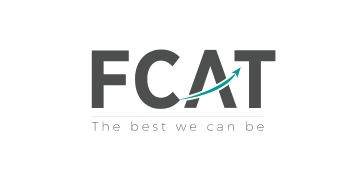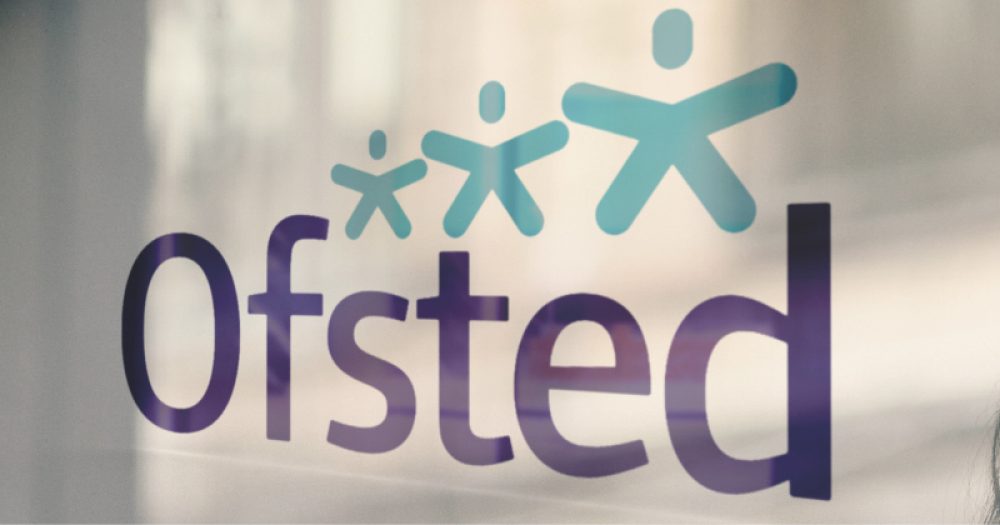A free school in Newcastle that does not teach humanities, arts or foreign languages has been branded ‘inadequate’ by Ofsted in its first inspection.
The education watchdog singled out the “unacceptable” absence of subjects at Discovery School, which also omits physical education, in its report from an inspection conducted in May.
“The curriculum is failing to meet pupils’ needs and does not prepare them for life in modern Britain,” it said.
The website for the secondary-level free school, which opened in 2014, describes it as “a new, industry-driven technical school for 13-19 year olds from Tyne and Wear, Northumberland and County Durham”, with a special focus on science, technology, engineering and mathematics.
At the time of the inspection, there were 188 pupils on roll, around four fifths of whom are male.
Ofsted noted that “far fewer pupils than anticipated” had been recruited, a situation which the watchdog claimed contributed to “the curriculum becoming narrow and unbalanced”.
Effectiveness of leadership and management at Discovery School was judged to be ‘inadequate’, while quality of teaching, learning and assessment, personal development, behaviour and welfare, outcomes for pupils and 16-to-19 study programmes were all rated as ‘requires improvement’.
The report confirmed two senior leaders “recently left the school”, while its principal Dr Wendy Allen “has announced she will retire at the end of the summer term 2017”.
“The trustees have belatedly recognised that the school’s staffing structure was not fit for purpose,” the report said, adding that “a restructure is currently underway in order to deploy more resources to front-line staffing”.
The quality of teaching was deemed “variable”, with leaders “slow to set out their expectations for teaching and learning” and failing to hold “teachers to account tightly enough”.
Provision for pupils with special educational needs and/or disabilities was “underdeveloped” and the needs of some pupils had not been identified.
“Some parents express concerns that their children’s needs are not being met,” the report said.
Outcomes in science, technology and mathematics at Discovery School were “broadly average” last year, but exam results in other subjects, including English, were “disappointing”, and leaders did not expect any improvements in 2017.
The school’s results for 16-to-19 study programmes in 2016 were “generally weaker than seen nationally” and the progress of current learners in the sixth form was “no better than average”.
Ofsted also found that “not all pupils value their education”, with attendance “below average”.
Strengths included a “positive culture” fostered by the outgoing principal, who “enjoys the loyalty and backing of her staff”.
The staff were said to be “keen to address the school’s weaknesses”, and pupils are enjoying “the well-resourced facilities available to them”.
Pupils were also found to “access appropriate destinations” when they leave the school.
Ofsted’s suggestions for improvement focused on strengthening “the quality and impact of leadership and management”, for example by “providing a broader and more balanced curriculum so that pupils’ academic and personal development needs are well met”.
It proposed an “external review of the school’s use of the pupil premium” to “assess how this aspect of leadership and management may be improved”.
Ensuring that “physical education contributes to pupils’ health and well-being,” and improving personal, social, health and economic learning to strengthen “pupils’ appreciation of fundamental British values”, was also recommended.
Discovery School was unavailable for comment.
Earlier this week, Schools Week reported that the government had threatened to rebroker a free school that was put in special measures after failing to enter any year 11 pupils for GCSEs.
The Route 39 Academy in Devon was rated ‘inadequate’ by Ofsted on Wednesday (July 27), with inspectors criticising the school’s decision to keep all 13 of its year 11 pupils away from the exams.








Ofsted have failed again to point out Citizenship is missing from this school’s curriculum. They identify a lack of breadth and balance and say the curriculum fails to prepare children for life in modern Britain or address ” British Values”. Inspectors rightly mention other subjects (arts, humanities) are missing yet fail to mention Citizenship. Citizenship remains a National Curriculum and GCSE subject and should be part of a broad and balanced curriculum in every school. Schools Week doesn’t pick this omission either! The Expert Subject Advisory Group and Citizenship organisations have developed a National Action Plan for Citizenship which calls on Ofsted to play their part and ensure the subject is properly referred to inspections. https://www.teachingcitizenship.org.uk/sites/teachingcitizenship.org.uk/files/National%20Action%20Plan%20for%20Citizenship%205%20July%202017%20-%20final.pdf
I completely agree with shining a light on schools that are performing as poorly as Discovery School seems to be doing. Hopefully such exposure will result in change being implemented asap.
One genuine question though after two stories this week about Ofsted reports on free schools: does anyone know the last time SchoolsWeek wrote about an Ofsted report on one of the 17,000 odd schools that is not an academy/free school?
There are more Inadequate schools that are local authority maintained than academies plus free schools. I have no concrete examples, but given this I’d be astonished if there weren’t similarly depressing tales within the maintained sector.
Shining a light on bad practice should not be dependent on a school’s status.
“Shining a light on bad practice should not be dependent on a school’s status.”
Yes, it should currently. The whole point of academisation was, ostensibly, to ‘drive up standards’, so if it isn’t doing that, the public who pay for schools, and academisation, need to know that their money isn’t being put to best use, especially as this money could be spent on maintained schools (and likely improve their Ofsted ratings). It is then right that media outlets focus on this still unproven policy.
No, absolutely not. This is not AcademiesWatch, it’s SchoolsWeek. The fact is that about 70% of the schools in England are not academies. Are you saying that SchoolsWeek should not be reporting on these schools? That if a maintained school is found to be doing terrible things it should be ignored?
I’ll give you a quote from the Laura McInerney:
“This week we changed our name from Academies Week to Schools Week, and I took over the editor’s chair. We changed name because the old one wasn’t quite right. Many of you said it didn’t reflect our impartial reporting of the whole schools sector, and you were right – so we changed it.”
I just find it unfortunate that your viewpoint seems to reflect the general tone of comments on this site and what appears to be the reality of the editorial policy, i.e. it doesn’t matter what happens in the 17,000 non-academy schools. Personally I think SchoolsWeek should be about the whole schools sector, as Laura McInerney also used to think …
Academisation was supposed to raise the educational standards of maintained schools. In fact, academisation’s pretext is the poor performance of maintained schools. We then already know that maintained schools are struggling. That’s why there is an academisation programme.
We don’t need to know therefore that maintained schools are struggling. What we do need to know is whether the policy designed to improve maintained schools – academisation – is succeeding or not. For if it isn’t, the policy should be halted as it is needlessly wasting valuable resources and the futures of many pupils and staff, and another policy, say, for example, funding maintained schools properly, should be devised and implemented instead.
This is not a tone, not a viewpoint, it’s scrutinising Government policy. And there’s nothing unfortunate about that (unless we prefer Government to do whatever it likes irrespective of any consequences or accountability).
Can you please reply to the point being made. According to its own editor SchoolsWeek is about “impartial reporting of the whole schools sector”. That’s the WHOLE school sector.
Yes, that absolutely includes scrutinising Government policy (of which academisation is only part) – I’ve said that all the way through so to refer to preferring Government to do whatever it likes is specious.
So no, I don’t think its unfortunate that Government policy is scrutinised – I think that’s a good thing. What I think would be unfortunate is if in such an important sector as education, which is massively wide and covers so many different issues and areas, that everything other than the academies programme is ignored.
Analysis on local.gov.uk using Ofsted data up to 31 December 2016 found:
91% of council maintained schools were good or better compared with 89% of converter academies, 84% of free schools and 65% of sponsored academies.
The analysis recognised Ofsted changed the way it inspected schools in 2012. Many Ofsted reports pre-date this. Using post-September 2012 inspection data only, the figures show council maintained schools still have the largest proportion of good or better schools.
The analysis comes with several caveats, however. See http://www.localschoolsnetwork.org.uk/2017/07/free-school-headlines-stuffed-full-of-selected-stats-part-1
Mark Watson:
“Can you please reply to the point being made.”
Academisation should be the focus of the press currently. It shouldn’t focus on the whole sector if currently Government reforms, i.e. academisation, are supposed to be working but are not, and especially when the policy has in its most egregious cases created such wastes of talent and resources, and in these cases is having so negative an impact on pupils.
“According to its own editor SchoolsWeek is about “impartial reporting of the whole schools sector”. That’s the WHOLE school sector.”
Okay. But why bother with leaving your opinions in the comments section? What are the chances that the more senior staff at Schools Week will even read them? Presumably, you’ve contacted the editorial team?
“Yes, that absolutely includes scrutinising Government policy (of which academisation is only part)”
It is the most concerning part currently. That’s why it should be the focus currently.
“I’ve said that all the way through so to refer to preferring Government to do whatever it likes is specious.”
It’s not specious. It’s the point being made.
“So no, I don’t think its unfortunate that Government policy is scrutinised – I think that’s a good thing.”
Good. But you seem to think that Schools Week should also cover other stories, which they already do, incidentally, but if they do more of this, given finite resources and only so many hours in a working week, this will mean devoting less time to doing the scrutinising of policy that we both think is a good idea, and that in my opinion should be the priority currently.
“What I think would be unfortunate is if in such an important sector as education, which is massively wide and covers so many different issues and areas, that everything other than the academies programme is ignored.”
(See above)
Sorry, but this website/paper should not just be a crusade against the principle of academisation, however much some people might want it to be. Like it or not, although academisation is probably the headline policy of this Government they do have other education policies. And your original points seem to be saying that SchoolsWeek should not just ‘focus on’ or ‘prioritise’ academies, but that it should cover them to the exclusion of every single other aspect of the education sector. So, for example, you presumably don’t think they should be covering the tos and fros of how the national funding formula is going to be changed, or what’s going to happen with free primary school breakfasts? Personally I do want to hear the good and bad things going on in the whole sector, not just academies. If all you’re concerned with is gaining more ammunition against academies I suggest you try the anti-academies alliance or even the local schools network who have clear and stated agendas that seem to be more in line with your comments.